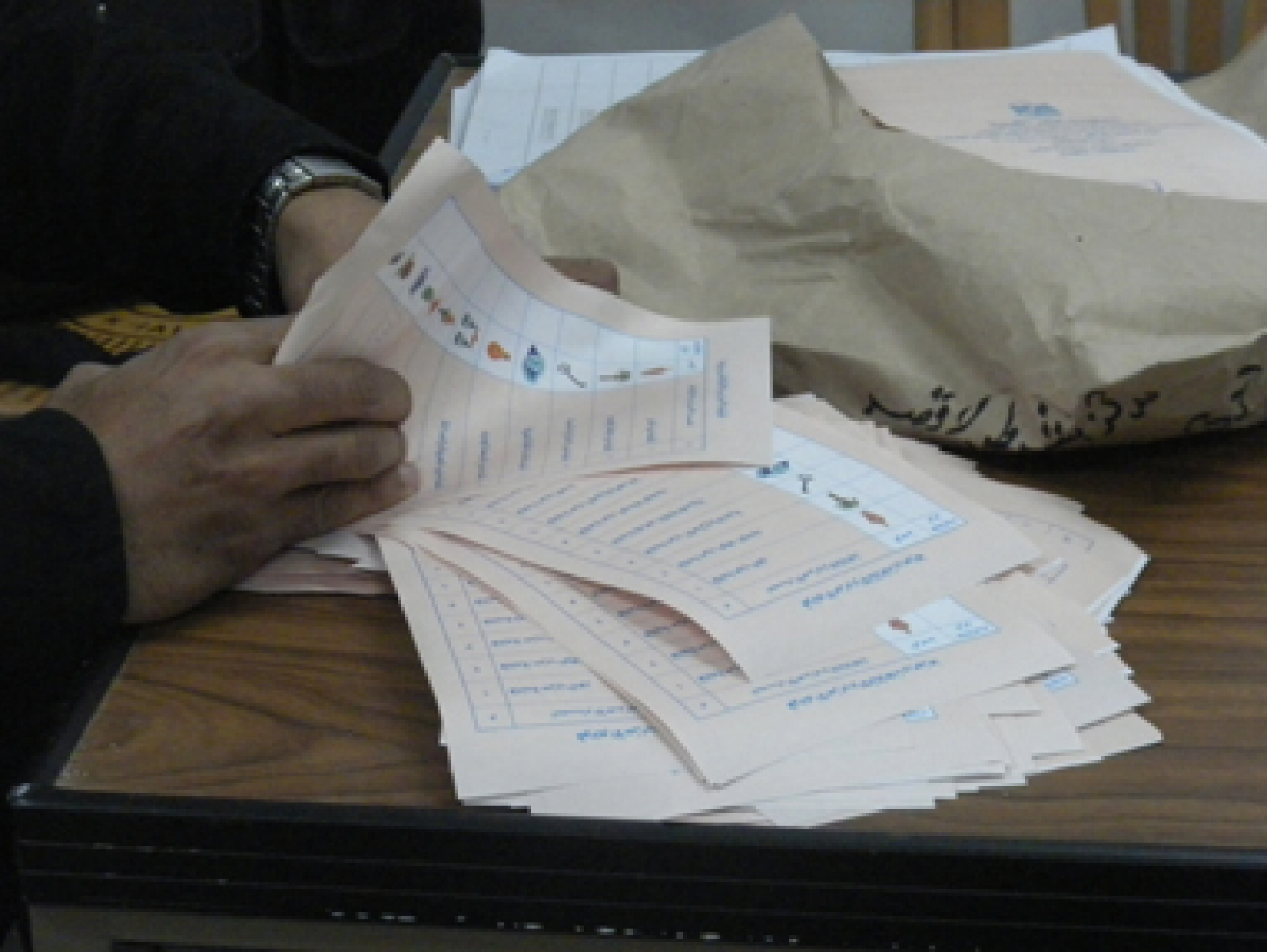
SHARE
Voter enthusiasm was again a dominant feature of this third round of voting in the Egyptian People’s Assembly elections. Three credible rounds of polling now raise the likely prospect that Egypt’s next parliament will reflect the will of the people, NDI said in a statement released in Cairo.
NDI deployed 32 accredited “witnesses” from 16 countries in Asia and the Pacific, Europe, Latin America, the Middle East and North America to observe this third and final round of elections. Voters in the governorates of Dakahliya, Gharbiya, Matrouh, Minya, New Valley, North Sinai, Qalubiya, Qena and South Sinai went to the polls on Jan. 3 and 4. The delegation visited nearly 200 polling stations in seven of the nine governorates. The mission’s objective was to witness impartially the pre-election environment and election-day proceedings and to demonstrate the interest of the international community in the development of democratic political processes in Egypt.
The delegation’s work was informed by the findings of NDI’s 65 observers from the previous two rounds of elections, including 12 long-term witnesses who have been in country since early November to observe the pre- and post-election periods, as well as all run-off contests. The delegation was co-led by Genaro Arriagada, the former minister of the presidency in Chile; Audrey McLaughlin, former leader of the New Democratic Party in Canada; and Kenneth Wollack, president of NDI. Prior to the elections, the delegation met with senior government and election officials, political party representatives, candidates, citizen election monitors, civil society leaders and media representatives.
Consistent with the first two rounds of elections, NDI observers reported high turnout and voting conducted in a mostly peaceful and orderly manner. Even where long lines were observed, voters demonstrated determination, patience and enthusiasm in casting their ballots. Judicial authorities and poll workers administered procedures in a generally impartial and conscientious fashion.
NDI witnesses also noted that improvements observed in the second round of voting on Dec. 14 and 15 were sustained in this latest round. These included: more frequent efforts by electoral and security authorities to prevent active campaigning at polling centers; more easily identifiable poll workers and party agents who wore distinctive vests or armbands; and a greater number of information stands and posted lists, providing voters with a non-partisan alternative to information needed to cast their ballots.
However, certain electoral problems noted in the first two rounds of voting remained. Despite efforts by electoral and security officials to curb campaigning around polling centers, some of the parties and candidates were observed distributing promotional materials and soliciting votes. There were several reported instances of party and candidate agents actively participating in the administration of elections or attempting to unduly influence a voter’s choice. While security officials mostly adhered to their mandated role, observers in more than half of the governorates noted cases of improper conduct of security agents, who at times directed the electoral process or intimidated the election officials and witnesses.
The inconsistent application of procedures were observed, including the type of assistance provided to illiterate voters, ballot reconciliation, and identity checks of veiled women. Inadequate space at polling facilities and overcrowding at times limited the ability of judges to oversee the voting process and compromised the secrecy of the vote.
While election and security officials welcomed observers in most cases, there were still instances of both international and domestic witnesses being denied entry or being asked to leave before concluding their observation. In addition, NDI’s international observers and its Egyptian staff encountered isolated cases of hostility from security and election officials in several governorates. It remains unclear whether this was linked to the recent negative publicity surrounding the raids on the offices of international organizations and Egyptian civil society groups. These actions compromised the Institute’s ability to observe the electoral process in these locations.
The delegation, whose findings are generally in line with those of established Egyptian monitoring groups, recognizes that it is still too early in the post-election period to render a complete or definitive assessment of the election process. Further statements will be released following the third round run-offs, and a final report on all three rounds will be published after the entire election process is completed. NDI conducted its activities in accordance with the laws of Egypt and the Declaration of Principles for International Election Observation, which is endorsed by 39 intergovernmental and nongovernmental organizations and was launched at the United Nations in 2005.
The mission, funded by a grant from the U.S. Agency for International Development (USAID), builds on NDI’s 25 years of experience observing more than 200 elections around the world, including delegations in Tunisia, Morocco, Jordan, Lebanon, the West Bank and Gaza, and Yemen. NDI’s global programs have been supported by governments, intergovernmental organizations, foundations and private contributions. The Institute’s programs in Egypt have been supported by USAID and the U.S. Department of State’s Bureau for Democracy, Human Rights and Labor.
Related:
- First round of Egyptian parliamentary elections signify promising start»
- Voter enthusiasm still strong in second round of Egyptian parliamentary elections»
- Facts on NDI’s presence and programs in Egypt»
Published Jan. 6, 2012


